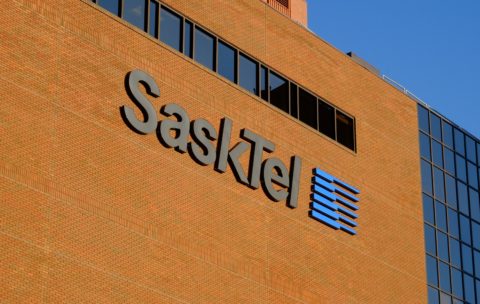When it comes to cell phone service, you usually get what you pay for. When it comes to the most recent provincial election, the people are getting what they voted for and now we’re all paying the consequences.
Shortly after handing out a $3 million subsidy to SkipTheDishes and approving the construction of a $278 million football stadium in Regina, Brad Wall announced a $1 billion resource revenue shortfall and tabled an egregious budget.

While the future of SaskTel isn’t looking so certain, keeping the crown corporation public is vital.
To make up for these hidden shortfalls, the Saskatchewan Party’s first priority was to cut funding for education, healthcare and the Saskatchewan Assured Income for Disability support program, leaving the most vulnerable members of society behind.
Wall had previously made election promises to refrain from the privatization of public entities, such as liquor stores and healthcare. Following privatized MRI clinics and the beginnings of private liquor stores in the province, Wall promised to keep the public’s best interests in mind when it comes to the potential sale of crown corporations.
With SaskTel as the latest publicly owned corporation on the chopping block, the government needs to proceed with caution. It has been argued that a late campaign push to sell Saskatchewan’s most beloved crown corporation cost the Sask Party the 2003 general election.
In the spring of 2016, the New Democratic Party’s warnings failed to resonate with the voters of Saskatchewan. However, in the present, those same voters are beginning to agree that making a one-time deal to sell a revenue generating asset like SaskTel in order to alleviate a temporary problem is the wrong way to go about this issue.
The idea of keeping taxes low — as Wall campaigned to do in the most recent election — is a moot point when the question of selling crowns comes to fruition. These publicly owned industries are largely intended to help the people of the province save money by keeping costs low and providing high quality service in both urban hubs and rural areas. They were built by the people for the people, and the removal of the services is redundant.
If Bell Canada or Telus swoop in and purchase SaskTel, rural services will undoubtedly diminish and the long-term annual dividends that the company currently generates will be completely eliminated.
Keeping with Wall’s tendency to outsource jobs to out-of-province and out-of-country consultants, the loss of SaskTel will be a devastating cause of lost jobs. Unemployment is skyrocketing in this province and this deplorable deal would only help Wall break the record.
Students and young people receive significant benefits from SaskTel. Cell phones have become a necessary tool in managing daily life and it is imperative that students be able to receive cell phone coverage without breaking the bank.
As previously mentioned, SaskTel was built by Saskatchewan people, for Saskatchewan people. Because crown corporations differ in such a large part from other service providers, they are better able to deliver top-notch services at a fraction of the cost, while returning profits back to the province. In fact, cell phone rates are lower in Saskatchewan compared to other provinces thanks to competition from SaskTel.
There’s no question that times are tough in Saskatchewan right now. The price of oil plummeted from the unprecedented high it was at when the Sask Party took over, but has recovered to sit over $40 per barrel.
However, it should never come to selling SaskTel. If the Sask Party had properly controlled spending, made reasonable projections about the future of resource revenue and admitted they were wrong when the projects they instituted began to hurt people, SaskTel would not be in danger.
We don’t need a long, costly referendum about whether or not to sell SaskTel. The company speaks for itself. If it comes to that, the people of Saskatchewan need to hold the government accountable and fight to protect this imperative and important crown corporation from more Sask Party mismanagement.
—
Travis Hebert
Photo: regnatarajan / Flickr
Leave a Reply